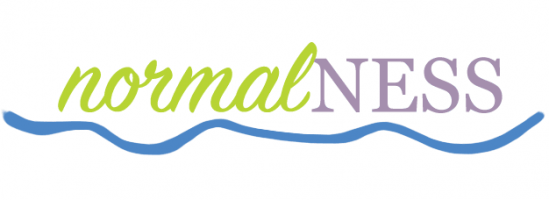I’ve managed to study a lot in my life. But I’ve always struggled when I go “outside my area” in one way or another. When I swapped unis (and states) after one year of my undergrad degree I had to take another first year unit to suit the new uni’s course structure. And I could barely pass it! I did pass, but I didn’t do well as I had already moved on in my study, so going “back” to first year thinking and expectations was actually quite hard.
Don’t Learn, You Might Get The Answers Right!

Firstly, a general disclaimer. Overall, I think learning is good. Sometimes you go to uni to learn. Sometimes it’s TAFE. Other times is private self-study, or on the job. There are lots of ways and no one way is correct, either for you or for the topic.
Is this why I’ve never understood TAFE grading in Australia? Pass/Fail doesn’t teach you squat. https://t.co/M1DltETV95
— Vanessa Smith (@normal_ness) January 8, 2018
I have never studied in the Australian vocational sector. My personal experience of it is quite limited. I once tried to help Ben when he tried a uni entry prep course and I found the questions were ridiculously convoluted, as if making it impossible to understand a simple question made it a challenge and therefore you were learning. I stopped helping him because I made it worse, frankly. I wrote it off as a load of crap. (It may not be, but it was from my perspective. However, I’m also not the target person for that course, so that might explain it.)
(Or it might be crap.)
I’ve never understood how pass/fail teaches you what you got right, wrong and where you need to improve. I’m not a teacher or educational expert of any kind, but I’ve been a student and I read the feedback I get from assessment every time. Because I learn from it.
The best example I have of not understanding the TAFE/vocational sector actually came when I was at a two day first aid training course, quite a few years ago now. We had a great instructor the first day. So engaging, he got everyone into the content and made sure people really understood it.
The second day we had just an average person teaching us. It wasn’t the worst in the world but we all missed the guy from the first day. Anyway, on the second day of the first aid course, we had a written test. And in that test, there was a question on a medical topic that we hadn’t covered at all in the two days.
Those of us who finished the test early were hanging out in the foyer so we didn’t disturb others. We were talking about that question we’d all had no knowledge of. Conveniently, the instructor from the first day was walking past. We said hello and stopped him to ask about that random question. He said that they are not allowed to teach the answers to all of the tests in the course, otherwise everyone will get everything correct. And he implied that this is just how the vocational sector works.
How is it considered education if you’re not allowed to teach the content to answer the questions on the test? What is wrong with people answering questions correctly; ON A FIRST AID TEST? “Sorry, we can’t cover this content that you might need to know as a first aider because otherwise we’ll look bad that everyone got the answers right.” How is that (apparently) a thing?
Have you ever studied in the vocational sector? Do you find you learn from pass/fail, or do you like detailed feedback?







I think everyone learns differently & there’s no one size fits all way to teaching or learning. I have a huge problem with the school system & HSC – so don’t get me started on that – but always found that with Uni & other courses I’ve done from time to time, it’s the extra reading outside of class that gets you over the line & through the questions they don’t explicitly cover in class. Is that right when you’re paying a fortune to be taught? No, I don’t think so – especially not when it’s a vocational subject where you need to get it right eg like in first aid.
Yes, the one-size approach to our entire educational system is certainly an issue. I hated school but I love learning!
It’s an interesting point you make about all the reading at uni, I guess I was lucky in that 99% of my lecturers brought in all the points of the readings together in class and doing the reading each week held a high level of relevance.
What the? That’s crazy! The whole point of a course (especially a first aid one) is that you learn as much as possible. That’s so strange. Although I haven’t done any vocational education at all so I guess I don’t really know how the system works. I’m hoping to do a first aid course in the US in March though, I wonder if that will have a similar outcome. #LifeThisWeek
It makes literally no sense to me. I’ve found first aid course value varies on the instructor. Great instructors are ex-cops, ex-paramedics and the like. Generic ones like semi-retired guys (as have been most of the instructors in recent years certifications for me) just don’t have that level of personal experience and value to bring to it.
I think I’ve become a better ‘learner’ as I’ve aged and have done many online courses. I can’t believe that TAFE teacher’s response. Although I remember doing my HSC and had taken French. We would be tested on French literature as well as the language. There were 5 books and I studied 3 so of course the one in the exam was one of the two I’d taken the gamble not to study. Oh well, I’m 60 now and I matriculated way back then but to me it has been my life experiences that have been my best teacher.
I’ve always done well in things I like and poorly in things I don’t like! I guess interest is a massive motivational factor for me 🙂
I’ve always been more of a self-taught kinda girl. I don’t do so well with structure, I think. But I agree that random question is soooo weird.
I’ve loved what I’ve learned at unis over the years but sometimes the pointless bloody rules did my head in!
Ah. the TAFE system or similar.
I did my 2 lots of training for Certi IV in Training and Assessment – one was the initial Cert and then “the powers that BE called the Australian Education Sector) upgraded it..and since then there have been more.
I had to do that qualification even though I had a post grad cert in Teaching English to Speakers of Other Languages and had B.Ed and M.Ed because I was only qualified to teach children.
For me to work in the Tafe or Vocational College sector I needed the Cert IV which is to teach adults.
In the training we did, and it was INTENSE with soooooo many units and paperwork, it was quite the ‘head spin’ for me as I was so embedded in how I would teach and assess kids.
It was explained to me that the units for any adult training are very detailed and that the trainer (note: not called a teacher!) has to observe the qualities or sections of the course being MET (not passed) or UNMET. The students could see (because of the details within the structure of the course and how the trainer explained it) where they had not met or met the STANDARDS because that is how the Australian Training System does it.
In Australia we are still bogged down in education systems being state-based for K-12 schools, federally for Unis, Early Childhood and Workplace or Vocational Training.
See? Messy! As for the trainers you spoke of, lack of consistency is not helpful and I think “keeping something OUT of the test” is actually contradictory to the training I did because the idea was you were trained in every aspect and had to be seen to have MET that.
Long story, hey?
Thank you for linking up for #lifethisweek 3/52. Next week’s optional prompt is “What is Kindness?”
The education system is such a mess. It’s a wonder I finished school sometimes going through two states and some UK schooling haha. I think I did year 3 nearly twice and only a little of year 4 due to the way the semesters work internationally.